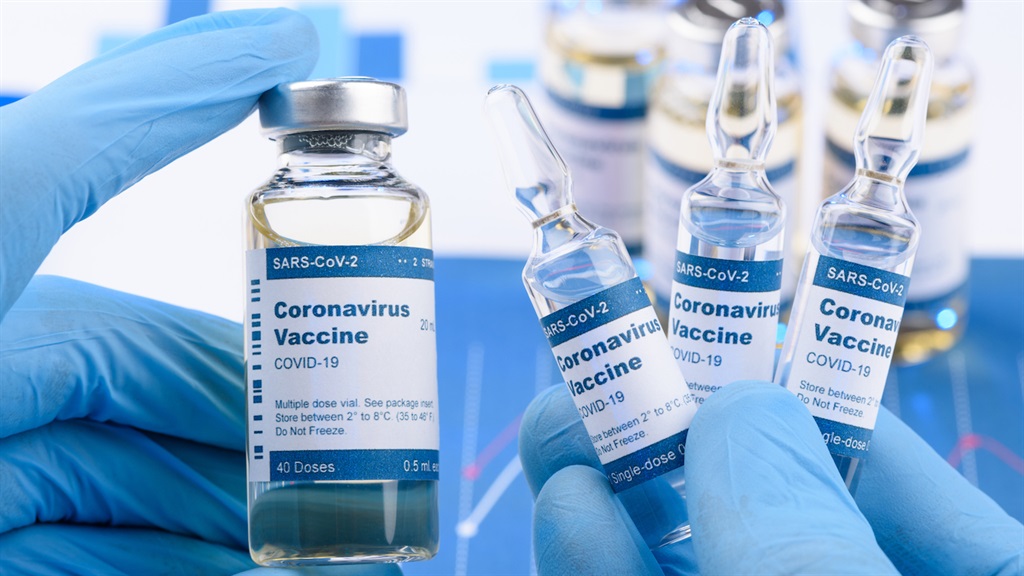News24.com | Covid-19 vaccine rollout: Military roped in, health professionals to help manage adverse reactions


WHO has recommended a course of Covid-19 treatment.
Getty Images
- Health officials with resuscitation kits will be on hand to help should anyone have an adverse reaction to the Covid-19 vaccines.
- Health Department official Aquina Thulare briefed the ANC’s Progressive Business Forum on the vaccine rollout.
- The military will help safeguard sites and everyone who receives vaccines will be registered on a central database.
Health professionals will be on standby at Covid-19 vaccination sites to tend to anyone who might have an adverse reaction to the vaccines, while the military is set to be deployed to safeguard distribution.
Those who agree to be vaccinated will be issued with a vaccine registration card and they will be allocated a site where they should go to get their jab.
These are some of the details of the vaccine rollout that has emerged during a briefing by Aquila Thulare from the Department of Health during a Zoom briefing to the ANC’s Progressive Business Forum on Tuesday.
She said:
The vaccination system is going to be based on a pre-vaccination registration system, meaning all of us will have to be on a register of some sort so that we know who has been vaccinated, where are they going to receive the vaccination, and there will be a system of registration.
Everyone who has registered will be allocated a site where they should go for their jabs, which will help the department to control how many people visit a site, but also helps the department with planning how many vaccines to deliver to a site.
“It also helps us to manage those who have to come back a second time,” she said.
To secure the distribution of the vaccines, those vehicles involved will be tracked and monitored to safeguard stocks.
The South African National Defence Force (SANDF) will be present at administration sites “to make sure that we secure this vaccine” and for security purposes and each dose will be tracked and traced through a barcode scanning system “meaning that we will have to make sure that we know where each and every vial is used”.
There will also be data verification of the vaccines that have been distributed and administered.
Vaccines must be disposed of in a secure fashion, but we also have to ensure that we monitor that there is no wastage, she said.
Vaccine distribution
In phase two and three of the vaccine distribution – once targeted groups like health workers and the elderly have received their doses – there will be mass vaccinations in urban centres of individuals and groups, while pharmacies, health facilities, community halls and schools will be used to administer the vaccines.
These sites will have to be registered and comply with a number of requirements.
“We do not want to see the vaccination programme impacting negatively on the other services that are provided, whether it is child illnesses, maternal services,” she said.
Vaccine confidence will increase through transparent and effective safety surveillance and causality assessment, Thulare added.
ALSO READ | Ramaphosa forms inter-ministerial committee on vaccines, to be led by David Mabuza
She said an electronic vaccination data system was currently being developed, and would leverage off existing systems.
The information collected by the system would include patient information, like demographics and number of doses to be received, the health establishment where it is administered, the vaccine administered, safety information and a record of vaccination issued to individuals where necessary.
“For the vaccination programme, wherever we are going to be vaccinating in the sites, there will be teams of health professionals that will be ready to manage any adverse effect that arise,” she said. This included resuscitation kits, to ensure that these are attended to “immediately and effectively”.
The department will also record how many people in the target population receive the vaccine and how many refuse, including the reasons why they do so.
The inter-ministerial committee on vaccines established by President Cyril Ramaphosa on Tuesday and chaired by Deputy President David Mabuza would coordinate the vaccination effort “to ensure that the 40 million South Africans that are going to make up the 65% [of the population who will be vaccinated] to build (“herd”) immunity are going to be vaccinated.
Ministerial advisory committees on technical issues and behavioural change will also be on hand to help with the effort.